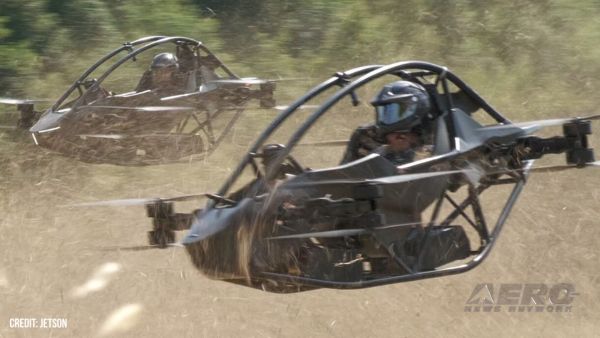Sun, May 29, 2022
Advertisement
More News
 Classic Aero-TV: Up Close And Personal - The Aeroshell Aerobatic Team at Oshkosh
Classic Aero-TV: Up Close And Personal - The Aeroshell Aerobatic Team at Oshkosh
From 2014 (YouTube Version): One Of The Airshow World's Pre-Eminent Formation Teams Chats About The State Of The Industry At EAA AirVenture 2014, ANN News Editor Tom Patton gets th>[...]
 ANN's Daily Aero-Term (07.13.25): Tactical Air Navigation (TACAN)
ANN's Daily Aero-Term (07.13.25): Tactical Air Navigation (TACAN)
Tactical Air Navigation (TACAN) An ultra-high frequency electronic rho-theta air navigation aid which provides suitably equipped aircraft a continuous indication of bearing and dis>[...]
 ANN's Daily Aero-Linx (07.13.25)
ANN's Daily Aero-Linx (07.13.25)
Aero Linx: Doobert Hi, we're Chris & Rachael Roy, founders and owners of Doobert. Chris is a technology guy in his “day” job and used his experience to create Doobe>[...]
 NTSB Prelim: Pitts S2
NTSB Prelim: Pitts S2
The Airplane Was Spinning In A Nose-Down Attitude Before It Impacted Terrain On June 20, 2025, at 0900 eastern daylight time, a Pitts Aerobatics S-2B, N79AV, was destroyed when it >[...]
 Airborne 07.09.25: B-17 Sentimental Journey, Airport Scandal, NORAD Intercepts
Airborne 07.09.25: B-17 Sentimental Journey, Airport Scandal, NORAD Intercepts
Also: United Elite Sues, Newark ATC Transitions, Discovery Moves?, Textron @ KOSH The Commemorative Air Force Airbase Arizona is taking its “Flying Legends of Victory Tour&rd>[...]
blog comments powered by Disqus





